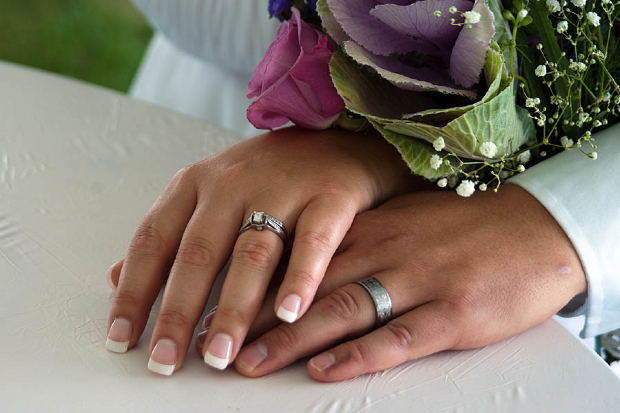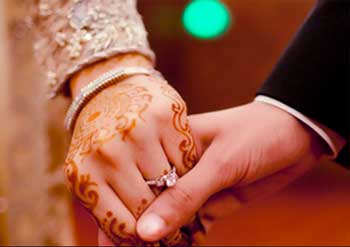
In the heartland of Uttar Pradesh, a story has emerged that reads like a dramatic novel yet is rooted in stark reality. The incident from Lakhimpur Kheri where a husband arranged for his wife to marry his uncle’s son has drawn attention from all corners, sparking debates about love, tradition, sacrifice, and societal norms. This is not just a tale of relationships but a window into the complex fabric of Indian family values, emotions, and the challenges posed by changing times.
The Discovery That Changed Everything
The story begins like many others in small-town India — with a marriage based on family ties, social customs, and expectations. The husband, a local resident, was married to a woman who soon found her heart drawn toward another man — his own uncle’s son. The discovery of this hidden relationship came as a shock to the husband. For months, the wife and her lover met discreetly, their affection blossoming in the shadows.
Such revelations in traditional settings are often met with anger, suspicion, and sometimes violence. But in this instance, the husband’s reaction was unexpected. Instead of succumbing to rage or seeking revenge, he chose a path marked by pragmatism and a sense of responsibility that went beyond personal pain.
When he confronted them, the couple admitted their love openly. This confession thrust the husband into a storm of emotions — betrayal, hurt, confusion — but also a deeper understanding of love’s complexities. Faced with this emotional turmoil, the husband made a decision that stunned many: he decided to marry his wife to his cousin, effectively dissolving their marital relationship in favor of honoring the woman’s choice and preventing a possible tragedy.
A Decision Born of Fear and Love
Behind this unconventional decision lay a very real fear — the fear of escalating conflict that could end in violence. Stories of honor killings and domestic violence are, unfortunately, not rare in parts of India when family honor is perceived to be at stake. The husband was acutely aware that his reaction could have dangerous consequences not only for the couple but for the entire family.
His fear of a tragic outcome motivated him to act differently. By facilitating the marriage between his wife and his uncle’s son, he hoped to protect everyone involved and avoid the cycle of violence that has plagued many similar cases. This was a choice filled with courage and deep empathy, challenging traditional notions of marriage, honor, and family loyalty.
The husband’s decision invites us to reconsider how love and sacrifice intersect. It questions the limits of forgiveness and the boundaries of social expectations.
Community Reaction and the Ripple Effect of an Unusual Union
The incident sent ripples throughout the community of Lakhimpur Kheri. Reactions were mixed, ranging from admiration and respect to condemnation and disbelief. For some neighbors and observers, the husband’s decision was a remarkable act of selflessness and progressive thinking. It was seen as a testament to the power of love and the importance of putting human emotions above rigid societal norms.
A neighbor who witnessed the wedding remarked, “It takes a strong person to make such a sacrifice. Instead of breaking families, he chose to unite them in a new way.” This viewpoint highlights a growing awareness and acceptance of complex personal relationships that don’t always fit neatly within tradition.
However, not everyone shared this sentiment. Many expressed concerns that the husband’s actions might undermine the sanctity of marriage and blur the lines of moral conduct. In more conservative circles, the decision was seen as controversial, even scandalous.
Such polarized views underscore the tension between evolving social values and long-standing cultural expectations in India. The debate touches on issues like the sanctity of marriage, familial duty, gender roles, and the authority of individual choice within a collective society.
Navigating Legal and Religious Complexities
Marriage in India is not only a social contract but also a legal and religious institution. The husband’s decision to marry his wife to another relative brought about unique legal questions and cultural challenges. Under the Hindu Marriage Act, marriages within certain degrees of relationship are regulated, and such unions require careful adherence to both legal and traditional protocols.
The families involved consulted religious leaders and legal advisors to ensure that the marriage was valid and respected community norms. The ceremonies were performed with full traditional rituals, blending respect for age-old customs with the new reality of the couple’s relationship.
This part of the story highlights how Indian society balances between legal frameworks and cultural traditions. It also illustrates the adaptability of these frameworks when confronted with unusual situations that demand empathy and flexibility.
The Emotional Journey of the Husband
Behind the headlines and community discussions lies the deeply personal emotional journey of the husband. Choosing to relinquish his marital rights and support his wife’s new relationship was not a decision made lightly. It involved immense inner struggle, pain, and sacrifice.
“I had to put their happiness before my own,” the husband shared in an emotional interview. “It’s not easy to watch someone you love move on, especially to someone so close to you, but sometimes love means letting go.”
Psychologists observing the case emphasize that such decisions often come at a high emotional cost. The husband’s mental well-being depends on his ability to process grief, loss, and acceptance. His resilience and strength will be tested in the coming years as he navigates life post this significant transition.
The Couple’s New Beginning: Love Against All Odds
For the wife and her new husband, the marriage represents a fresh start filled with hope, challenges, and the promise of building a life together openly and honestly. Their love, once hidden and fraught with risk, now has the blessing of their families.
The couple has expressed gratitude for the support they’ve received and acknowledges the complexity of the situation. Their story resonates with many who find themselves caught between societal expectations and personal desires.
This union stands as a testament to love’s resilience and the importance of empathy in resolving conflicts that stem from human relationships.
Broader Reflections: Changing Attitudes Toward Marriage in India
This incident has ignited broader conversations about marriage, love, and societal norms in contemporary India. While traditional values remain strong, increasing exposure to diverse perspectives and individual rights is prompting a gradual shift.
Experts in sociology and cultural studies note that cases like this reflect the evolving nature of relationships. “Love and marriage are no longer confined to rigid rules. They are fluid, complex, and deeply personal,” says a university professor specializing in Indian social change.
The story challenges the notion that marriage must always conform to conventional templates and highlights the need for compassion and flexibility in addressing personal and family matters.
Conclusion: A Story That Challenges and Inspires
The tale from Lakhimpur Kheri is more than just an unusual news story — it is a powerful narrative about human emotions, courage, and the complexities of love. The husband’s choice to marry his wife to his cousin underlines the potential for empathy and understanding to overcome traditional barriers.
As society grapples with changing values, this incident serves as a reminder that love can take many forms and that sometimes, the most difficult choices are the most compassionate. Whether this story becomes a beacon of progress or a subject of controversy, its impact on the lives of those involved and the wider community is undeniable.

